 W
WThe June 2016 Tel Aviv shooting, which occurred on 8 June 2016 in Tel Aviv, Israel, was a terrorist attack in which two Palestinian gunmen opened fire on patrons at the Max Brenner Cafe in the Sarona Market, killing four people and injuring seven others. The perpetrators were caught alive by the security forces and put in custody. According to an official indictment filed by the Tel Aviv District Prosecutor's Office the perpetrators were inspired by the Islamic State group.
 W
WOn 16 June 2017, two Palestinian men opened fire on Israeli police officers in the Old City of Jerusalem, injuring four of them. An additional attacker stabbed a policewoman, she was critically injured, and later died in hospital. All three attackers were shot and killed by the Israeli authorities.
 W
WOn 18 April 2019, gunmen massacred several passengers travelling from Karachi to Gwadar in Makran, Balochistan, Pakistan. An estimated 15 to 20 armed militants stopped around five or six buses between 12:30am and 1am on a Makran Coastal Road. After the buses halted the gunmen then inspected the identity papers of the passengers and had about 16 of them disembark. At least 14 were shot dead, while two passengers managed to escape from the gunmen and travelled to the closest Balochistan Levies checkpost. They were later transported to Ormara Hospital for treatment. Law enforcement and Levies personnel arrived at the scene shortly afterward and commenced an investigation into the attack. The victims bodies were taken from the Noor Baksh Hotel.
 W
WThe May 2010 Lahore attacks, also referred to as the Lahore massacre, occurred on 28 May 2010, in Lahore, Punjab, Pakistan, during Friday prayers. 94 people were killed and more than 120 others were injured in nearly simultaneous attacks against two mosques of the minority Ahmadiyya muslim community. After the initial attack, a hostage situation lasted for hours. Tehrik-i-Taliban Pakistan, as well as their Punjab wing, claimed responsibility for the attacks and were also blamed by the Pakistani Police.
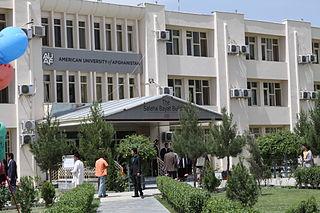 W
WOn 24 August 2016, attackers who are suspected members of the Taliban stormed the American University of Afghanistan in Kabul, Afghanistan, using a car bomb and automatic weapons. Thirteen people were killed, including seven university students, one policeman, three security guards at the university, and a university professor. Fifty to at least 53 people were injured, some critically. Three of the attackers were killed by Afghan Special Forces. This was the first direct attack on the university, although two professors were kidnapped just outside the university a few weeks prior.
 W
WThe 2013 Beersheba shooting was a mass shooting that occurred in a Bank Hapoalim branch located in Beersheba, Israel. Itamar Alon, an Israeli citizen, entered into the bank and opened fire, killing four and wounding five. He then took a woman hostage and killed himself when police arrived.
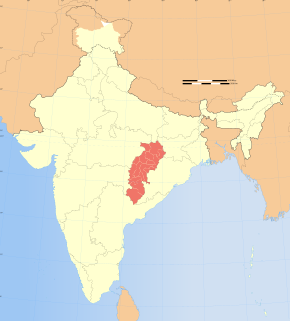 W
WOn 11 March 2014, 15 Indian security personnel and one civilian were shot dead in an attack engineered by Naxals.
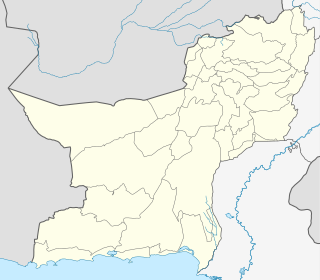 W
WOn May 13, 2017, two militants of the Baloch Liberation Army (BLA) riding on a motorcycle opened fire on group of laborers working in Gwadar, Balochistan, Pakistan. The road where these labourers were working was one of a network of connecting roads that form part of the China-Pakistan Economic Corridor (CPEC) project. The gunfire resulted in the death of 10 labourers. A spokesman for the BLA claimed responsibility of attack.
 W
WThe 2010 Habikino shooting was a deadly spree shooting which occurred at a drinking establishment located just south of Eganoshō Station in Habikino, Osaka Prefecture, Japan on 12 January 2010.
 W
W2011 Hazara Town shooting refers to a massacre of Hazara people on May 6, 2011 in Hazara Town, Quetta, Pakistan which left 8 dead and at least 15 wounded. The shooting took place early in the morning around 0630 hrs Pakistan Standard Time in a park when people were doing morning-exercises, playing cricket and football. Three rockets were fired which was followed by heavy gunfire. Lashkar-e-Jhangvi (LeJ) claimed responsibility for the attack.
 W
WOn 28 June 2011, an attack on the Inter-Continental Hotel, Kabul by gunmen and suicide bombers, and an ensuing five-hour siege, left at least 21 people dead, including all 9 attackers. Responsibility was claimed by the Taliban.
 W
WOn 20 January 2018, a group of four or five gunmen attacked the Inter-Continental Hotel in Kabul, Afghanistan, sparking a 12-hour battle. The attack left 40 people dead including fourteen foreigners, while 14 were injured.
 W
WOn 8 June 2014, 10 militants armed with automatic weapons, a rocket launcher, suicide vests, and grenades attacked Jinnah International Airport in Karachi, Pakistan. 36 people were killed, including all 10 attackers, and 18 others were wounded. The militant organisation Tehrik-i-Taliban Pakistan (TTP) initially claimed responsibility for the attack. According to state media, the attackers were foreigners of Uzbek origin who belonged to the Islamic Movement of Uzbekistan (IMU), an Al Qaeda-linked militant organisation that works closely with TTP. The TTP later confirmed that the attack was a joint operation they executed with the IMU, who independently admitted to having supplied personnel for the attack.
 W
WOn 13 May 2015, eight gunmen attacked a bus travelling in Safoora Goth, Karachi, Sindh in Pakistan. The shooting left at least 46 people dead. All of the victims were of the Ismaili Shia Muslim minority, suggesting the attack was a targeted killing of sectarian nature.
 W
WOn 21 January 2019, in central Afghanistan, the Taliban attacked a military compound in Maidan Shar, killing officers of the Afghan National Directorate of Security. The Taliban attacked while engaging in the process of negotiating a truce with the United States. The attack began when an explosives-laden car rammed through a military checkpoint and onto the grounds of the compound, where the vehicle detonated. After the explosion, two gunmen entered the base and opened fire on Afghan soldiers, before the two were shot down. A senior official in the Afghan defense ministry said that 126 people were killed in the explosion. The Taliban claimed responsibility and stated that over 190 people were killed in the attack. The Afghan National Directorate of Security (NDS) reported that 36 military personnel were killed in the attack. Afghan president, Ashraf Ghani condemned the attack and said that the 'Afghan intelligence agency personnel were target of the attack'.
 W
WThe 2011 Mastung bus shooting was an armed attack on 20 September 2011 on a bus traveling in Mastung District near the city of Quetta in the Pakistani province of Balochistan. The attack left at least 26 people dead. The victims were Shi'a Muslim pilgrims of the Hazara community, suggesting the attack to have been a targeted killing of sectarian nature. The attack occurred in Luck Pass area near Mastung. The bus was leaving Quetta for Taftan, Balochistan. In addition, 2 others were killed in a follow-up attack on a car on its way to rescue the survivors of the bus attack, which raised the death toll to 28 on that day.
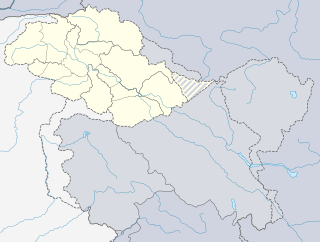 W
WThe 2013 Nanga Parbat massacre was a terrorist attack that took place on the night of 22 June 2013 in Gilgit–Baltistan, Pakistan. About 16 militants, reportedly dressed in Gilgit−Baltistan Scouts uniforms, stormed a high-altitude mountaineering base camp and killed 11 people; 10 climbers and one local tourist guide. The climbers were from various countries, including Ukraine, China, Slovakia, Lithuania and Nepal. A Chinese citizen managed to escape the assailants, and a member of the group from Latvia happened to be outside the camp during the attack. The attack took place at a base camp on Nanga Parbat, the ninth-highest mountain on Earth. The mountain is popular among trekkers and mountaineers, and is typically toured from June to August because of the ideal weather conditions during these months.
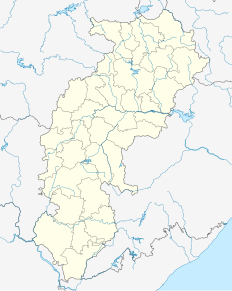 W
WOn 25 May 2013, Naxalite insurgents of the Communist Party of India (Maoist) attacked a convoy of Indian National Congress leaders in the Jhiram Ghati, Darbha Valley in the Sukma district of Chhattisgarh, India. The attack caused at least 27 deaths, including that of former state minister Mahendra Karma and Chhattisgarh Congress chief Nand Kumar Patel. Vidya Charan Shukla, a senior Congress leader, succumbed to his injuries on 11 June 2013.
 W
WOn 23 June 2017, a series of terrorist attacks took place in Pakistan resulting in 96 dead and over 200 wounded. They included a suicide bombing in Quetta targeting policemen, followed by a double bombing at a market in Parachinar, and the targeted killing of four policemen in Karachi.
 W
WThe 2016 Pathankot attack was a terrorist attack committed on 2 January 2016 by a heavily armed group which attacked the Pathankot Air Force Station, part of the Western Air Command of the Indian Air Force.
 W
WThe PNS Mehran attack was an attack/shooting by Tehrik-i-Taliban Pakistan (TTP) and Al Qaeda which took place on 22 May 2011, at PNS Mehran, the headquarters of the Pakistan Navy's Naval Air Arm and the most populous Pakistani military installation. It is located near the PAF's Faisal Air Force Base of Karachi, Sindh. In the course of the event, 15 attackers killed 18 military personnel and wounded 16 in a sophisticated terrorist attack. Two American-built P-3C Orion surveillance aircraft were destroyed.
 W
WAn attack on a Central Reserve Police Force camp at Bemina, Srinagar, Jammu and Kashmir, India, occurred on 13 March 2013. It resulted in the death of five CRPF personnel and two attackers. Ten others were also injured include security personnels and civilians.
 W
WOn 1 January 2016, an Israeli Arab gunman opened fire on several businesses on Dizengoff Street, in Tel Aviv, Israel, killing two people and injuring seven others. He also killed a taxi driver while fleeing. Selfie videos from his cell phone were later made public by the Shin Bet, with the videos leading officials to believe that the attack was inspired by ISIS. The event took place in parallel with the 2015-16 Palestinian unrest.
 W
WOn 14 July 2017, three Arab-Israeli men left the Temple Mount, and opened fire on Israeli border police officers stationed near the Gate of the Tribes which is close to the Lions' Gate. Two Israeli border police officers were killed and two more were injured in the attack. All three attackers were shot and killed by Israeli police after fleeing back into the complex.
 W
WOn 3 June 2019, a gunman killed four security members—two police officers and two soldiers—in Tripoli, Lebanon. The attacker was a recent member of the militant group Islamic State (ISIS), but no group claimed responsibility for the attack. The attack took place when security forces were dispatched to the city's streets to ensure citizen safety at the end of the Ramadan and Eid al-Fitr holidays. The attacker was identified by the authorities and the Lebanese army as Abdel Rahman Mabsout; he was a former ISIS member who had participated in the Syrian Civil War against the Syrian government. He was detained and tried for fighting for ISIS when he returned from Syria in 2016 but was released after a year in jail in late 2017.